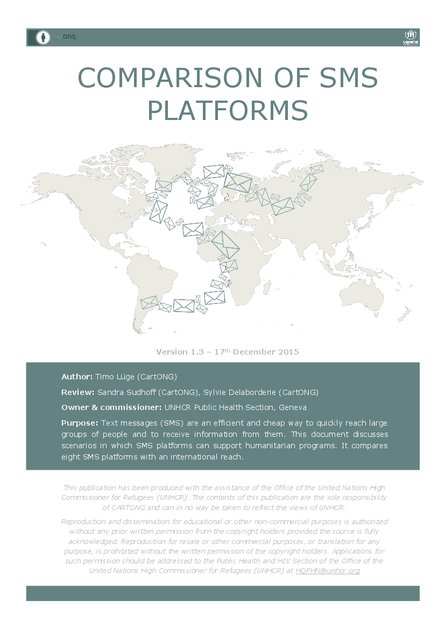
This resource was originally published on the CartoBlog in 2016 by CartONG. It was transferred to the IM Resource Portal in May 2021. The CartoBlog will be decommissioned in early 2022.
Whilst smart phones and instant messaging are certainly on the rise, they do depend on a reliable 3G network which is still not a given in many countries, especially not in rural areas. Consequently, in many regions SMS is still the most reliable mode of communication for beneficiaries or key informants working remotely. The Public Health Section of UNHCR, especially interested in understanding the platforms’ potential for health related communication and case management, commissioned CartONG to conduct a study. This was completed in form of an in-depth benchmarking of SMS platforms following a set of parameters set as required:
- Must support one-to-many messaging as well as one-to-one messaging
- Must support two-way-communication
- Must be able to send text messages in more than one alphabet
- Must be able to send text messages to at least 40 countries
- The platform must be a self-managed solution, i.e. program staff can send and receive messages and surveys themselves, without having to go through a service provider
- No software development skills or similarly advanced IT skills are necessary to use/install the platform.
Other than generic Mobile Data Collection (MDC) platforms, hosted in the cloud or setup on a computer and routed through a local network, SMS platforms and tools often do depend on the local setting and its available phone providers and a lot more time needs to be spent on researching the possibilities providers’ in-country offer before as opposed to the options provided by web based aggregators using international numbers. In most cases, a system cannot be set up within a few days if those questions have not been considered before.